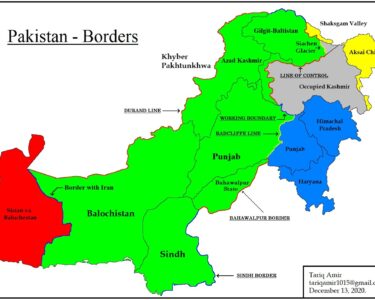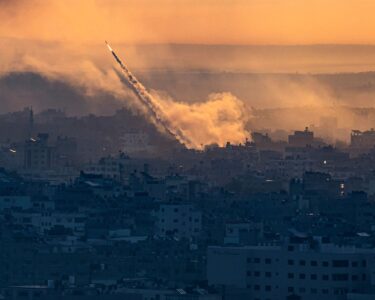Summary of Latest Developments
- Israel strikes central Beirut early on Thursday.
- Six people were killed and seven wounded in the Israeli airstrike.
- Yemen’s Houthis claim responsibility for a drone strike on Tel Aviv.
- Israeli forces suffer deadliest day on the Lebanese front in over a year.
BEIRUT/JERUSALEM, Oct. 3 – Israel launched an airstrike on central Beirut early Thursday, killing at least six people, after its forces suffered their deadliest day on the Lebanese front in a year of clashes with Hezbollah.
Israel said it conducted a precise air strike on Beirut. Reuters witnesses reported hearing a massive explosion, and a security source confirmed that the strike targeted a building in the central district of Bachoura near the Lebanese parliament, the closest an Israeli strike has come to the center of Lebanon’s capital. At least six people were killed and seven wounded, Lebanese health officials said. A photo circulating on Lebanese WhatsApp groups, though not immediately verified by AfrikTimes, showed a heavily damaged building with its first floor engulfed in flames.
Also, three missiles hit the southern suburb of Dahiyeh, where Hezbollah leader Hassan Nasrallah was murdered last week. Loud explosions were heard in the area, according to Lebanese security officials. On Wednesday, the southern suburbs were hit by more than a dozen Israeli airstrikes. The Israel Defense Forces (IDF) have warned residents of Lebanese villages who have evacuated their homes not to return until further notice. “IDF raids are continuing,” said IDF spokesperson Avichay Adraee on X (formerly Twitter) on Thursday.
Meanwhile, Yemen’s Houthi military group said it launched drone strikes on Israel’s financial capital, Tel Aviv. “The operation achieved its goals successfully by the arrival of the drones without being detected or shot down by the enemy,” said Yahya Saree, the group’s military spokesperson.
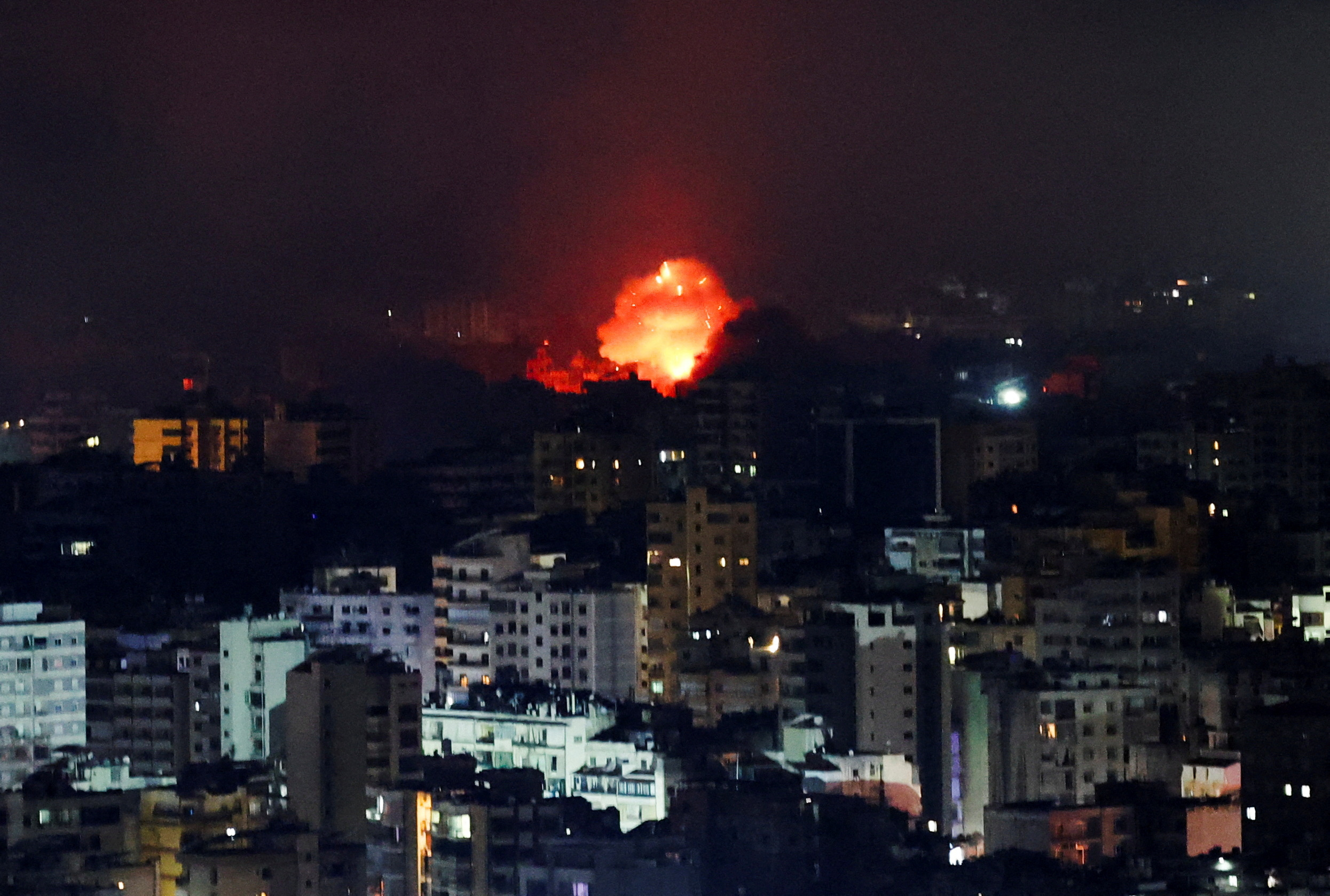 Fire and smoke rise over Beirut’s southern suburbs after a strike, amid ongoing hostilities between Hezbollah and Israeli forces, as seen from Sin El Fil, Lebanon, October 3, 2024. REUTERS/Amr Abdallah Dalsh.
Fire and smoke rise over Beirut’s southern suburbs after a strike, amid ongoing hostilities between Hezbollah and Israeli forces, as seen from Sin El Fil, Lebanon, October 3, 2024. REUTERS/Amr Abdallah Dalsh.
Hezbollah said its fighters engaged Israeli forces inside Lebanon. The movement reported ground clashes for the first time since Israeli forces pushed over the border on Monday. Hezbollah said it had destroyed three Israeli Merkava tanks with rockets near the border town of Maroun El Ras.
Israeli Prime Minister Benjamin Netanyahu, in a condolence video, said: “We are at the height of a difficult war against Iran’s Axis of Evil, which wants to destroy us. “This will not happen because we will stand together and with God’s help, we will win together.”
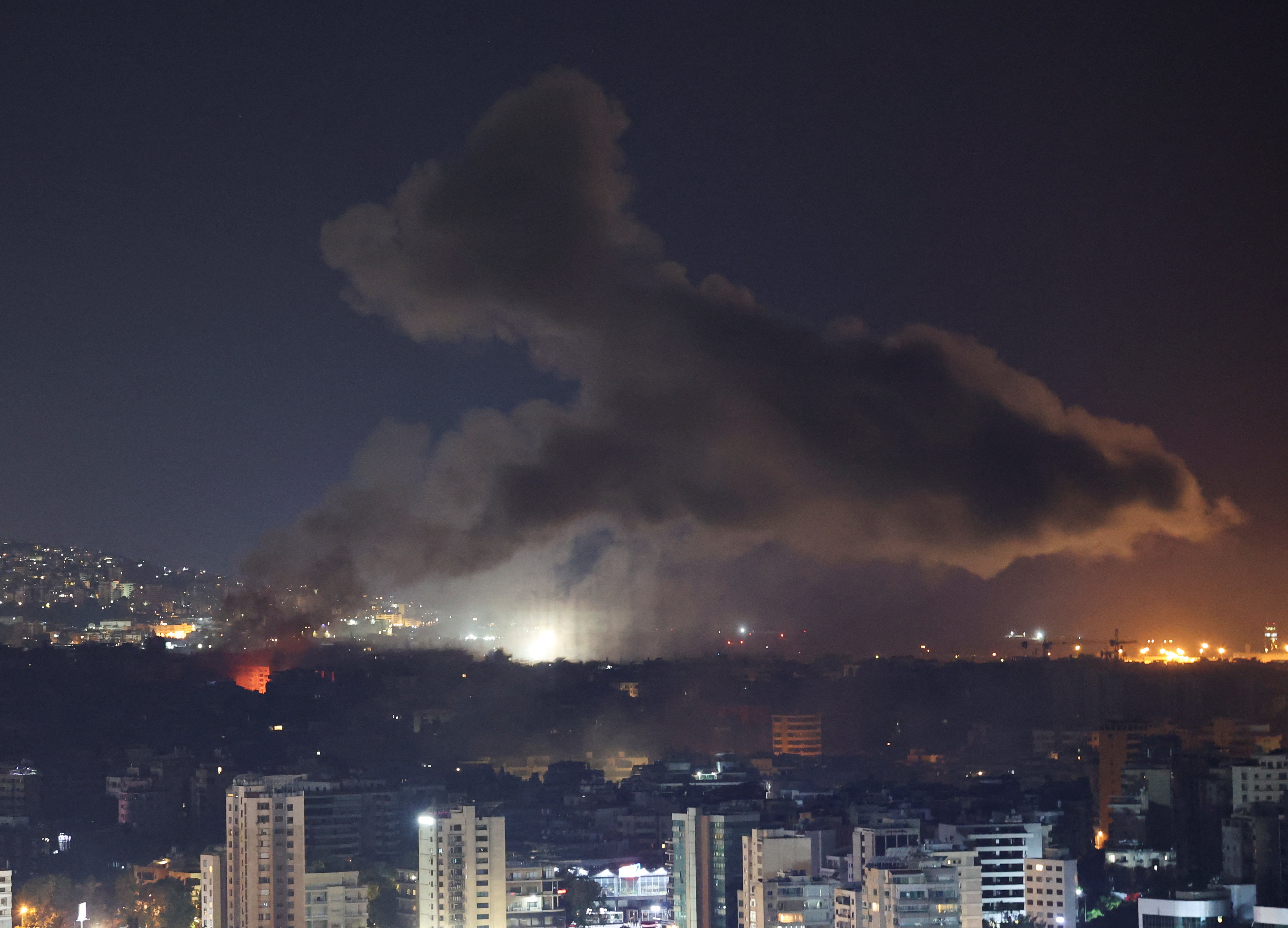 Smoke rises over Beirut’s southern suburbs after a strike, amid ongoing hostilities between Hezbollah and Israeli forces, as seen from Sin El Fil, Lebanon, October 3, 2024. REUTERS/Amr Abdallah Dalsh.
Smoke rises over Beirut’s southern suburbs after a strike, amid ongoing hostilities between Hezbollah and Israeli forces, as seen from Sin El Fil, Lebanon, October 3, 2024. REUTERS/Amr Abdallah Dalsh.
G7, China Call for Diplomacy
Lebanon’s health ministry said Israeli airstrikes killed at least 46 people in southern and central regions over the past 24 hours.
Iran said on Wednesday its missile volley – its biggest ever assault on Israel – was over, barring further provocation, but Israel and the United States promised to hit back hard.
U.S. President Joe Biden said he would not support any Israeli strike on Iran’s nuclear sites in response to its ballistic missile attack and urged Israel to act “proportionally” against its regional arch-foe.
Biden also joined a call with other leaders of the Group of Seven major powers to coordinate a response, which included the implementation of new sanctions against Tehran, according to the White House.
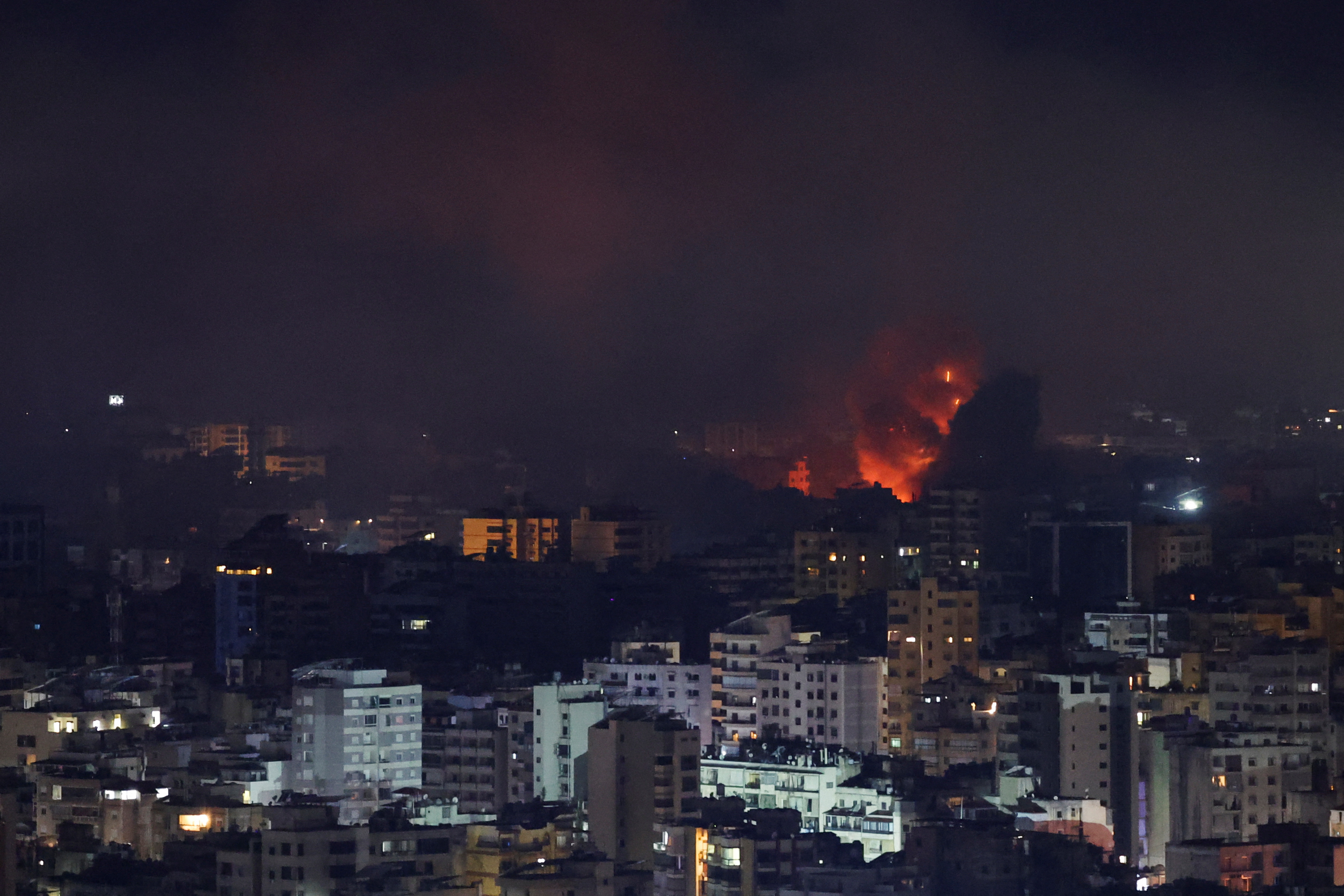 Fire and smoke rise over Beirut’s southern suburbs after a strike, amid ongoing hostilities between Hezbollah and Israeli forces, as seen from Sin El Fil, Lebanon, October 3, 2024. REUTERS/Amr Abdallah Dalsh.
Fire and smoke rise over Beirut’s southern suburbs after a strike, amid ongoing hostilities between Hezbollah and Israeli forces, as seen from Sin El Fil, Lebanon, October 3, 2024. REUTERS/Amr Abdallah Dalsh.
G7 leaders voiced “strong concern” over the Middle East crisis but said a diplomatic solution was still viable and a region-wide conflict was in no one’s interest, a statement said.
China called on the United Nations Security Council to take “urgent actions” to de-escalate the situation in the Middle East. “The Security Council bears the primary responsibility for the maintenance of international peace and security,” China’s permanent representative to the U.N., Fu Cong, said during a Security Council briefing on Wednesday, Xinhua news said. Fu said all parties “must return to the track of political and diplomatic solutions”.
Western nations have drafted contingency plans to evacuate citizens from Lebanon after Tuesday’s dramatic escalation, but none have launched a large-scale military evacuation yet, though some are chartering aircraft as Beirut airport stays open.
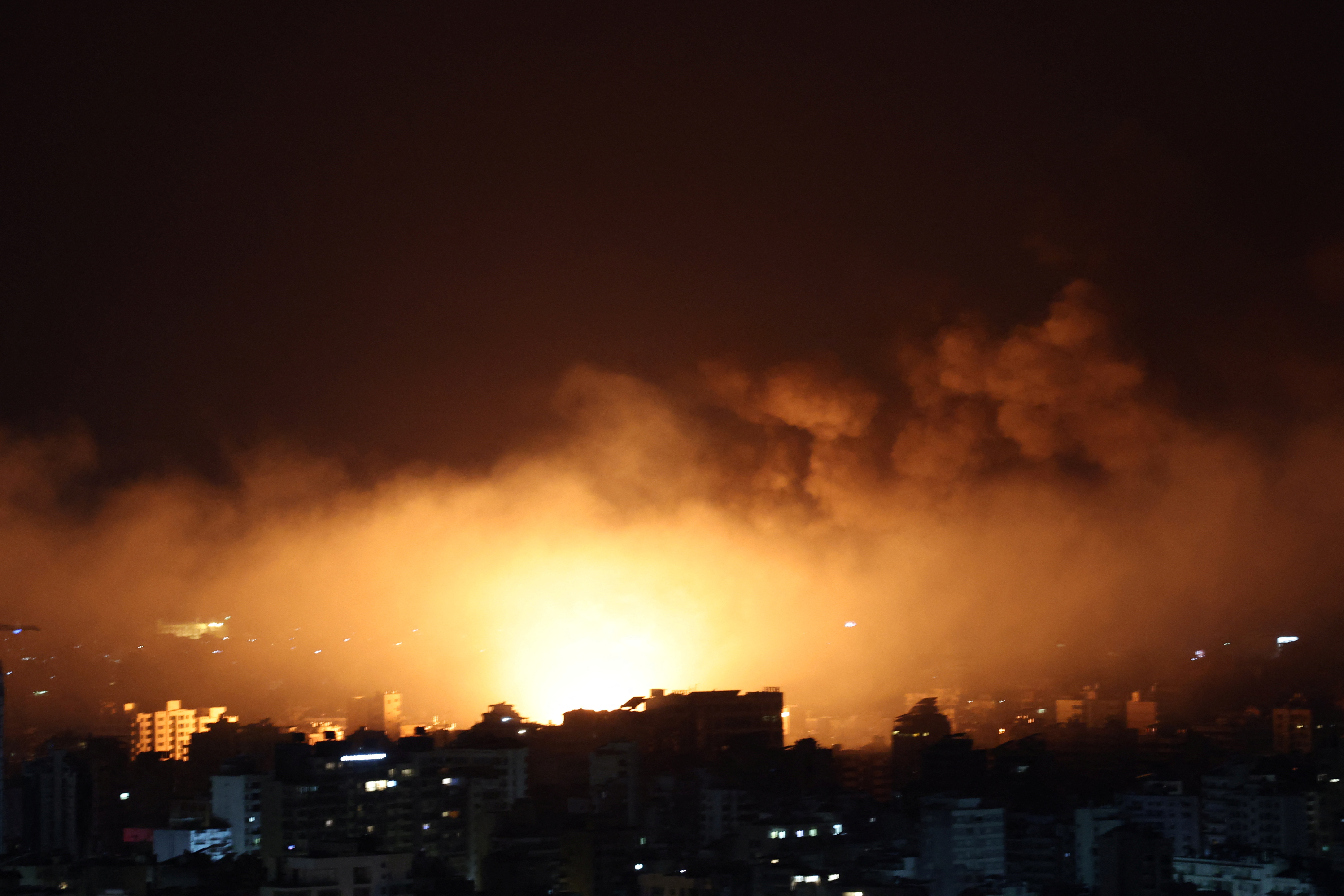 Fire and smoke rise over Beirut’s southern suburbs after a strike, amid ongoing hostilities between Hezbollah and Israeli forces, as seen from Sin El Fil, Lebanon, October 3, 2024. REUTERS/Amr Abdallah Dalsh.
Fire and smoke rise over Beirut’s southern suburbs after a strike, amid ongoing hostilities between Hezbollah and Israeli forces, as seen from Sin El Fil, Lebanon, October 3, 2024. REUTERS/Amr Abdallah Dalsh.
1.2 Million Lebanese Displaced
Hezbollah said it repelled Israeli forces near several border towns and fired rockets at military posts in Israel. The group’s media chief, Mohammad Afif, stated that these battles were only the “first round” and that Hezbollah had sufficient fighters, weapons, and ammunition to continue resisting Israeli advances.
Israel’s deployment of infantry and armored units from the 36th Division, including the Golani Brigade, the 188th Armored Brigade, and the 6th Infantry Brigade, suggested the operation could extend beyond limited commando raids. The military has said its incursion is largely aimed at destroying tunnels and other infrastructure on the border and there were no plans for a wider operation targeting Beirut to the north or major cities in the south.
Nevertheless, Israel issued new evacuation orders for about two dozen towns along the southern border, telling residents to head north of the Awali River, which flows east to west some 60 km (40 miles) north of the Israeli frontier.
More than 1,900 people have been killed and over 9,000 wounded in Lebanon in almost a year of cross-border fighting, with most of the deaths occurring in the past two weeks, according to Lebanese government statistics. Caretaker Prime Minister Najib Mikati said about 1.2 million Lebanese had been displaced by Israeli attacks.
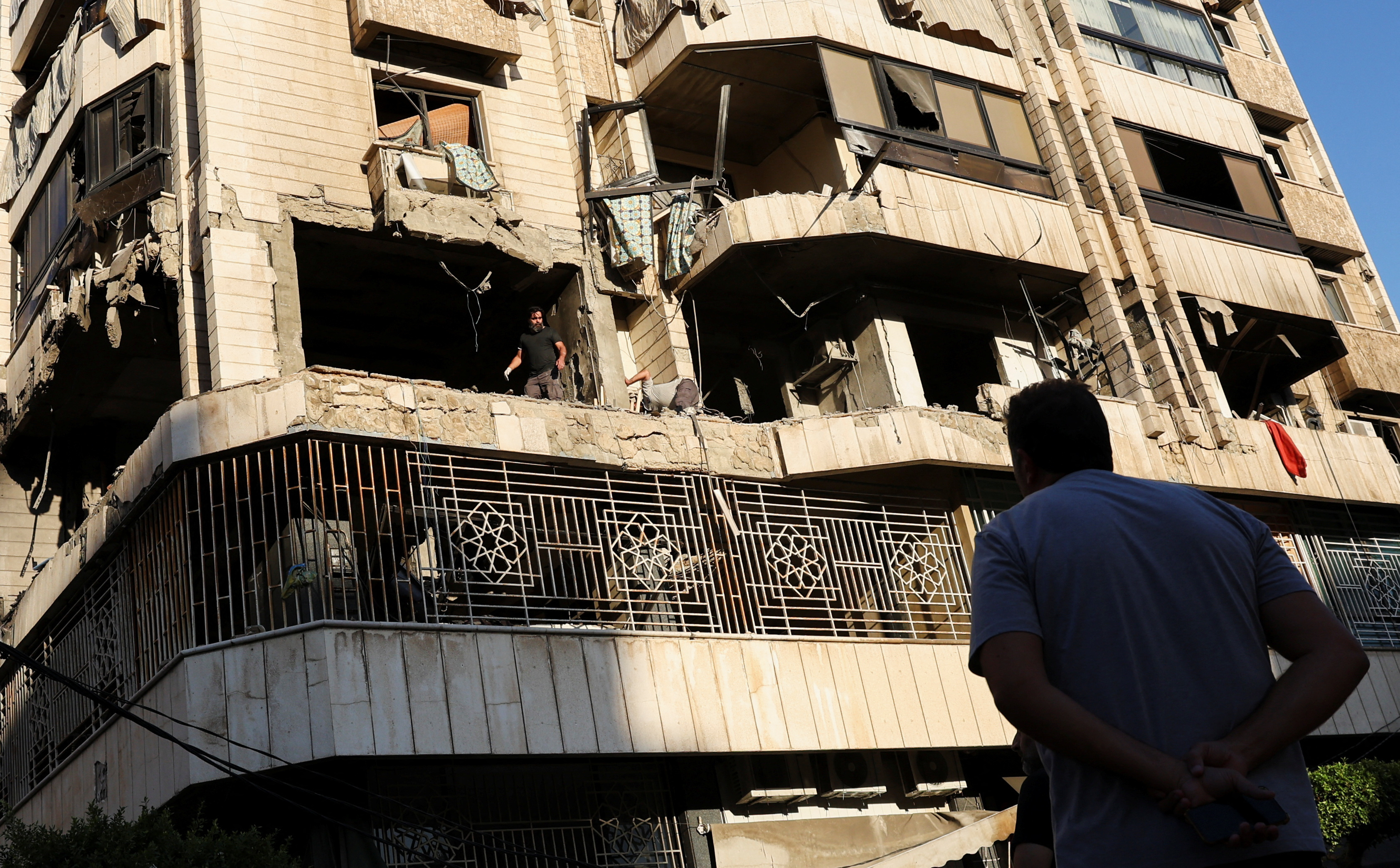 A man looks at a damaged building at the site of an Israeli strike on central Beirut’s Bachoura neighborhood, amid ongoing hostilities between Hezbollah and Israeli forces, in Beirut, Lebanon October 3, 2024. REUTERS/Emilie Madi.
A man looks at a damaged building at the site of an Israeli strike on central Beirut’s Bachoura neighborhood, amid ongoing hostilities between Hezbollah and Israeli forces, in Beirut, Lebanon October 3, 2024. REUTERS/Emilie Madi.
Malika Joumaa, a Sudanese national, took refuge in Saint Joseph’s Church in Beirut after being forced to flee her home near Sidon in coastal south Lebanon with her husband and two children. “We’re grateful for the church’s help,” she said. “Otherwise, we would have been left in the streets; we had nowhere else to go.”
Iran described Tuesday’s missile attack as retaliation for Israeli assassinations of resistance leaders, including Hassan Nasrallah, and for attacks on Hezbollah in Lebanon, and Israeli aggressions in Gaza. While Israel reported no casualties from the missile strikes, one person was killed in the Israeli-occupied West Bank.


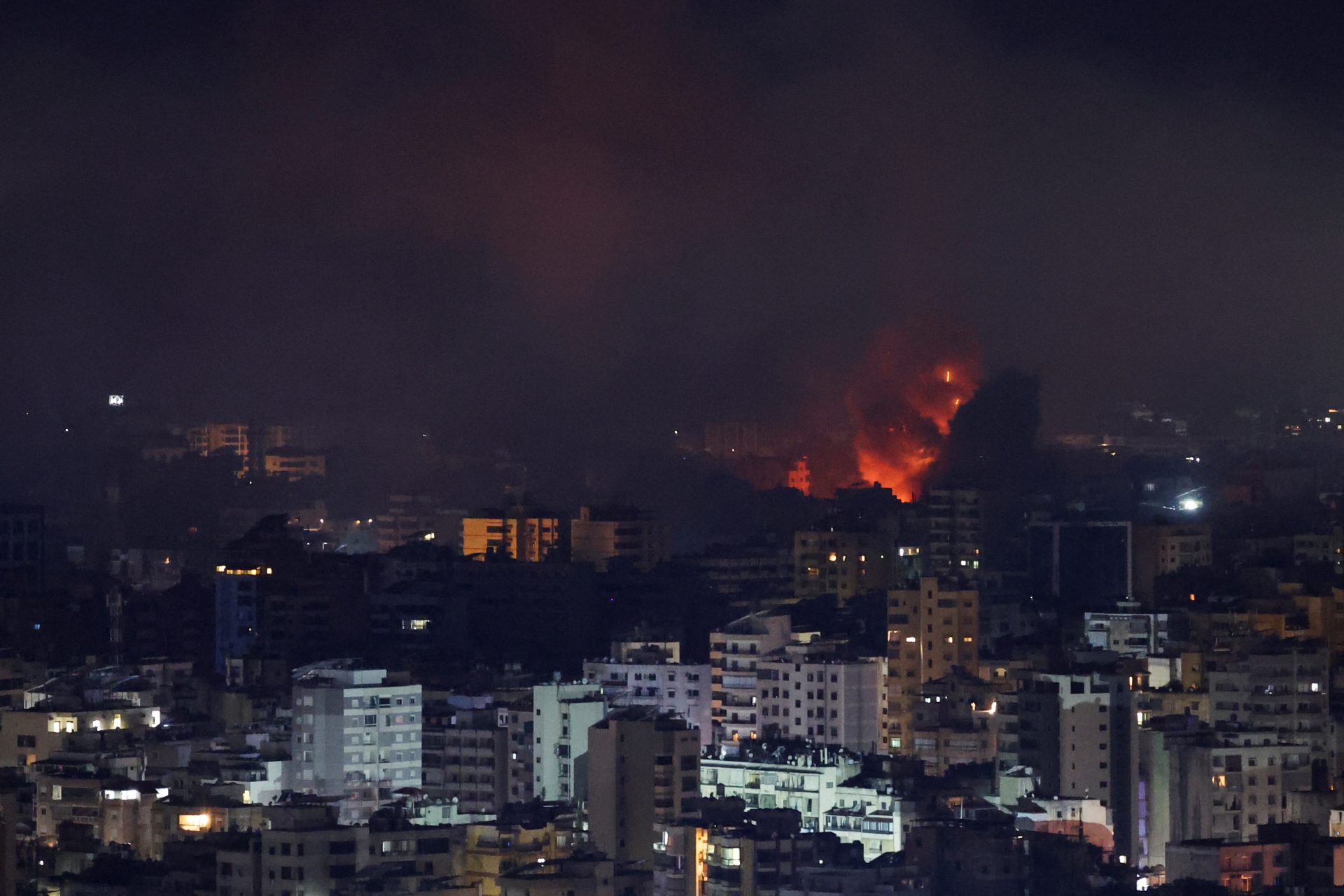

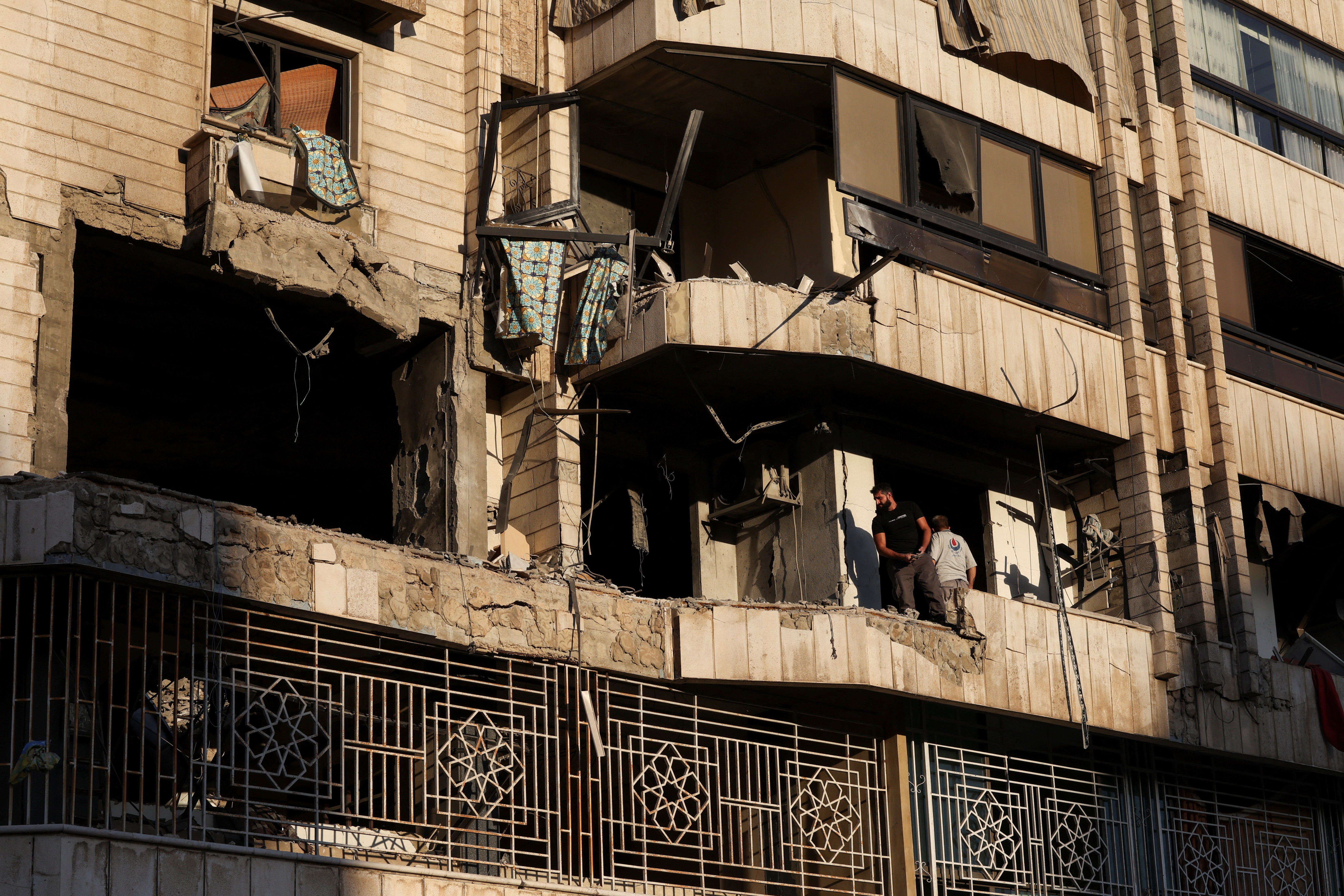 People inspect damage at the site of an Israeli strike on central Beirut’s Bachoura neighbourhood, amid ongoing hostilities between Hezbollah and Israeli forces, in Beirut, Lebanon October 3, 2024. REUTERS/Emilie Madi.
People inspect damage at the site of an Israeli strike on central Beirut’s Bachoura neighbourhood, amid ongoing hostilities between Hezbollah and Israeli forces, in Beirut, Lebanon October 3, 2024. REUTERS/Emilie Madi.

